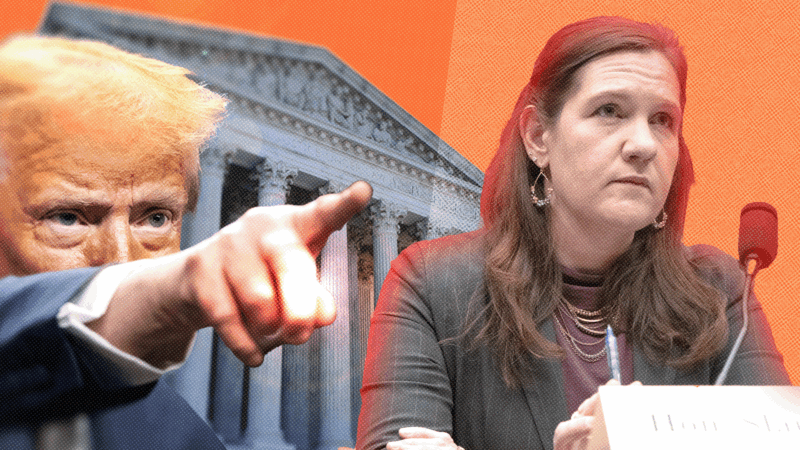SCOTUS Is Now Poised To Overrule Humphrey's Executor, a 1935 Precedent Limiting Presidential Power
The Supreme Court will soon review the president’s authority to fire “independent” agency heads.

In 1935, the U.S. Supreme Court unanimously held that President Franklin Roosevelt acted illegally when he tried to fire an anti-New Deal commissioner from the Federal Trade Commission (FTC). The FTC "cannot in any proper sense be characterized as an arm or an eye of the executive," declared the Court in Humphrey's Executor v. United States. "We think it plain under the Constitution that illimitable power of removal is not possessed by the President in respect of officers of the character of those just named."
But that was then. More recently, the Supreme Court has all but announced that Humphrey's Executor faces imminent judicial execution, an outcome that would allow President Donald Trump (and every president who succeeds him) to fire "independent" agency heads at will.
You’re reading Injustice System from Damon Root and Reason. Get more of Damon’s commentary on constitutional law and American history.
This week, the Supreme Court basically penciled in the date of execution when it announced that it will hear arguments in December in Trump v. Slaughter, the case arising from Trump's efforts to fire FTC commissioner Rebecca Slaughter, a Democratic appointee. The key question before the justices in the Slaughter case is this: "Whether the statutory removal protections for members of the Federal Trade Commission violate the separation of powers and, if so, whether Humphrey's Executor v. United States, should be overruled."
In the meantime, the Supreme Court has voted 6–3 to allow Trump's ouster of Slaughter to go into effect while the case moves forward, a strong indication that a majority of the Court plans to rule in favor of Trump on the merits later in the coming term.
This kind of final showdown over Humphrey's Executor basically became inevitable as soon as Trump tried to fire an FTC commissioner, since it was that very same act by Roosevelt that led to the 1935 precedent.
For Roosevelt, the inability to remove "independent" agency heads who dissented from his New Deal agenda was an outrage that he never got over. According to Robert H. Jackson, who served as both solicitor general and attorney general under FDR (and was later appointed by Roosevelt to a seat on the Supreme Court), "I really think the decision that made Roosevelt madder at the Court than any other decision was that damn little case of Humphrey's Executor v. United States. The President thought they went out of their way to spite him personally."
In fact, according to the great New Deal historian William E. Leuchtenburg, Humphrey's Executor was such a stinging defeat for FDR that it helped to inspire his notorious court-packing plan. "The Humphrey ruling," Leuchtenburg wrote, "went far to persuade the President that, sooner or later, he would have to take bold action against a Court that, from personal animus, was determined to embarrass him and to destroy his program."
FDR and Trump are not typically seen as ideological compatriots. But their shared vision of broad executive power is certainly evident here. What is more, Trump is now poised to exact the kind of bloody vengeance on Humphrey's Executor that Roosevelt could only dream about.
